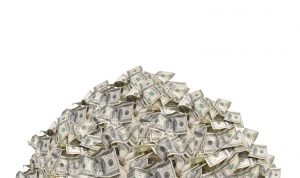The Destruction of The Dollar
The comments below are an edited and abridged synopsis of an article by Doug Casey
Inflation occurs when the creation of currency outruns the creation of real wealth it can bid for; it isn’t caused by price increases. Rather, it causes price increases. Inflation is the work of government alone, since it controls the creation of currency.

To inflate, a government needs complete control of a country’s money. This has the widest possible implications, since money is much more than just a medium of exchange. Money is the means by which all other material goods are valued. It represents the hours of your life spent acquiring it. And if enough money allows you to live life as you wish, it represents freedom as well.
The most socialistic, or centrally planned, economies have the most unequal distribution of wealth. In those societies the unprincipled become rich, and the rich stay that way, through political power. In free societies, the rich can get richer only by providing goods and services others want at a price they can afford. As inflation gets worse, there is growing public outcry for government to do something about it.
Possible solutions include wage and price controls, credit controls, restrictions on changing jobs, controls on withdrawing money from bank accounts, import and export restrictions, restrictions on the use of cash to prevent tax evasion, nationalization, even martial law. None of these solutions addresses the root cause—state intervention in the economy.
The real problem is not what is done, but how it is done: that is, through the political process or through the free market. Political action can change things, it’s just that the changes usually aren’t very constructive.
That is the nature of government: It doesn’t create wealth, it only allocates what others have created. More typically, it either dissipates wealth or misallocates it, because it acts in ways that are politically productive rather than economically productive.
